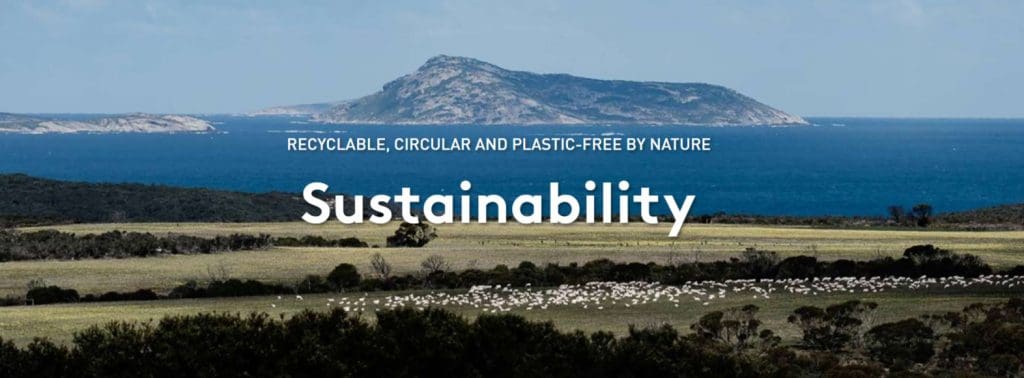
AUSTRALIAN Wool Innovation plans to form an international natural fibre coalition to ensure plant and animal fibre clothing demand is not harmed under the European Union’s Product Environmental Footprint Scheme.
Under its Sustainable Products initiative, the EU proposes to draft legislation aimed at making products sold in the union more sustainable, but the International Wool Textile Organisation believes the EU’s current labelling laws, by not rewarding the attributes of natural raw materials nor penalising key environmental impacts of fossil fuel-based raw materials, will lead to falling demand for wool and cotton.

AWI program manager, fibre advocacy & eco-credentials Angus Ireland.
AWI program manager, fibre advocacy & eco-credentials Angus Ireland said the EU’s intention is to inform consumers about eco-friendly purchases to benefit the planet; however, AWI and the IWTO believe consumers will be misled and that their purchases of synthetic clothing are bad for the planet. Mr Ireland is also vice chairman of the IWTO’s Sustainability Committee.
The IWTO told the cotton industry at the recent Bremen Cotton Conference it believed natural fibres such as cotton and wool offer many solutions to the world’s current environmental challenges, but risk being misrepresented by EU sustainability ratings.
As part of the popular panel for Responsible Fibre Production, chaired by Cotton Incorporated senior vice president Mark Messura, IWTO secretary general Dalena White cautioned attendees that, under current ratings systems, products made from wool and cotton are at significant risk of being rated poorly compared to synthetics.
“To establish responsible textile and fibre production standards for the future, we will have to face the elephant in the room: our addiction to fast fashion,” Ms White said.
“This highly lucrative business model, enabled by the massive growth in fossil fuel-based fibres turned into low quality garments by the lowest labour rate available for the season, has been dominating our industry for the past 30 years, resulting in opaque supply chains.
“Responsible fibre production systems of the future must include responsible fibre consumption.”
The Sustainable Products Initiative is open for public consultation until 09 June 2021 and Mr Ireland encouraged Australian wool growers to make their voice heard in support for natural fibres by completing the questionnaire on ec.europa.eu.
“Certainly, and to facilitate that AWI will be keeping Australian wool growers updated with the messaging that we believe will resonate most strongly in the EU and have best effect.”
All natural fibre industries are at risk
Mr Ireland said Australian Wool Innovation and the IWTO are coordinating closely on the Sustainable Products Initiative and are planning a much broader collaboration involving more than the wool and cotton industries.
“All natural fibre industries, including plant and animal fibres are at risk of being harmed if the EU PEF labelling scheme proceeds without improvement.
“So our intent is to form a natural fibre coalition and we have already commenced discussions with the international bodies representing these other fibre types,” he said.
“The EU is currently in its consultative stage on textiles, so we will be taking every opportunity to do so across the course of 2021, including providing feedback on the Sustainable Products Initiative.”
AWI is also working the Australia’s Department of Foreign Affairs and Trade team in Brussels to maximise its impact, and is coordinating with other Australian RDCs to influence PEF methodology.
The European Union has targeted the textiles industry as a priority sector for establishing sustainability standards, in order to achieve climate neutrality and a true circular economy. Clothing and textile products sold in the EU may soon be required to carry labels displaying their environmental credentials, in the expectation that consumers will use these to make the best choice for the planet in their purchasing decisions.
However, the IWTO believes that the current EU rating rules soon to be applied to textiles, and designed largely by the European Commission, would result in all-natural fibres being rated as less sustainable than synthetic fibres. Under these systems, renewable and biodegradable fibres do not receive any positive scoring, petroleum-based fibres receive no penalties for being non-renewable and non-biodegradable, and microplastic pollution does not carry any negative scoring.
EU rating scheme could impact wool and cotton demand
Mr Ireland believed the result of a rating scheme that didn’t reward the attributes of natural raw materials nor penalise key environmental impacts of fossil fuel-based raw materials would be falling demand for wool and cotton, as brand purchasing managers are forced to look for alternative fibres with ‘better’ ratings.
He agreed that it is not in the interest of fast fashion to allow natural fibres their deserved place in a balanced ecological environment, and if left unchecked, these scoring systems will see cotton, silk, wool, and other valued animal fibres relegated to the ranks of the unsustainable throughout the production cycle and ultimately at point of sale.
“The fast fashion model is exactly the opposite of wool’s position.
“Wool is a high value fibre, that produces durable and long-lived clothing, that needs to be laundered less often than other fibre types – so it retains its ‘as-new’ appearance longer,” he said.
“Wool’s model is slow fashion, where high quality wool garments only need to be replaced infrequently.”
The IWTO said research has established that wool fibres biodegrade in marine and terrestrial environments and do not contribute to microfibre pollution. Last year, IWTO published the first full Life Cycle Assessment (LCA) for a wool garment which revealed that wool garments have less impacts in the use phase because they are laundered less often than other fibre types and are kept in active use by consumers for longer, saving valuable resources during the use-phase. Further work (in press) has shown impacts can be dramatically reduced by using garments to their potential.
As for cotton, Prof. Thomas Schneider, University of Applied Sciences for Technology and Economics (HTW), Berlin, said, “We have seen that cotton is indispensable for the future because of its properties as a natural, innovative, renewable, biodegradable, and recyclable raw material. The possibilities of its use go far beyond processing into clothing and are far from exhausted from the point of view of research.”

HAVE YOUR SAY